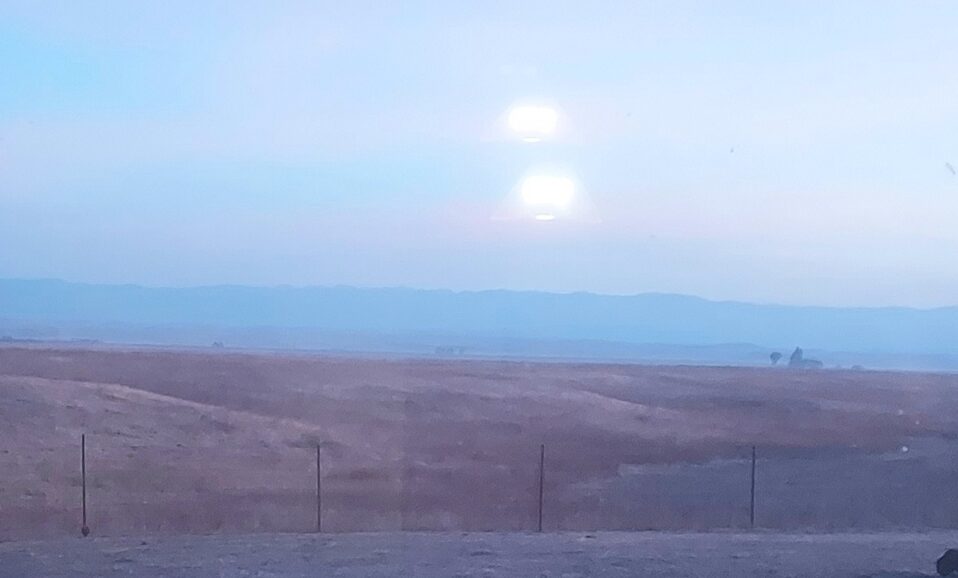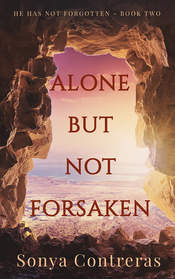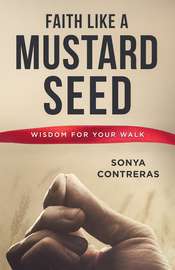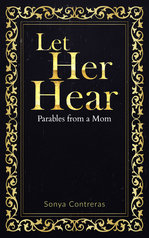- Home
- Index
-
My Books
- Book List
- Writing/Reading Articles Listing
-
My Short Stories
- What God Lost
- What God Lost — Part 2
- When Hope Was Lost
- A Battle in the Heavens
- To Live Forever
- Finding Peace
- Empty Hands
- From Fire and Thunder to Love and Submission
- The Coming One
- Forgiveness Made Possible
- The Innkeeper's Wife
- Do You Have The Right Words?
- The Lamb of God As Told by a Scribe
- What Love Is This?
- When Heaven Came Down
- Family
- Faith
Why do Bad Things Happen to Good People?
October 1, 2014
 This week we shift from looking at God’s love to looking at man’s need for perfecting.
This week we shift from looking at God’s love to looking at man’s need for perfecting.
Most of us sympathize with the dying man who said, “What harm have I ever done God?". But if we remember from the last article, God made us to give Him pleasure. The greatest wrong we do is to leave Him alone.
We wish secretly, “Why won’t He leave me alone?” But we wouldn't want such a God.
God compares your state with Himself. And we all fall short.
We compare our goodness to others and find safety. We’re just fine. We think God sees us as a group. He doesn’t. We stand before Him alone—undone.
‘Sowing wild oats’ in your youth, then settling down after the wild teenage years gives a false impression that time cancels sin. Time does not absolve our actions. We will stand before Him with our entire life before Him.
The standard of goodness is not fallen man nor does time erase our actions.
God compares our state with Himself. We all fall short.
What was that first sin?
Our first sin was not against our neighbor as a social sin by not being kind, nor was it just disobeying God’s command. The consequences don’t justify the disobedience. Adam and Eve were cast from the Garden. They were separated from God.
Before the fall, man’s thoughts centered on God and what pleased Him. Whatever man did, it was with God’s pleasure in mind.
The first sin rejected the reason God made them—for His pleasure. The fall turned man’s thoughts from God to himself. “I will be like God.” Self ruled.
Man’s very purpose for life—to please God—was not completed. We are undone. We are guilty. “For My thoughts are not your thoughts, nor are your ways My ways, declares the Lord.” (Isaiah 55:8)
“We are not merely imperfect creatures needing to be improved but rebels who must lay down our arms.” (Lewis, p. 91)
How do we recover that self-surrendered life in which we were created and which gives us happiness?
Nothing but redemption through His Son’s blood can complete the work of rejuvenation in our hearts and minds to make us pleasing in His sight.
To render back to God our self-will is a painful kind of death. When disciplining a child, the first step breaks the child’s will. He must will to do his father’s desire. We, too, must die daily to self.
The problem with this dying is that our spirit will never surrender self-will as long as everything goes well. The child continues to do wrong until pain redirects his desire.
Before feeling pain, we continue in our illusion that all is well. Isn’t God pleased? Why do we need God? We have all we want. God is an interruption.
Pain forces us to see that all is not well. God is not pleased. God interrupts to tell us we lack Him.
Because God made us and loves us, He knows that our happiness lies in Him. We do not seek Him except as a last resort. Our self-sufficiency makes surrender repulsive.
Why do bad things happen to good people?
This self-sufficiency may be the strongest in kind, honest, ‘good’ people. Their ability to be self-sufficient keeps God at arm’s length, until God causes them to see nothing but Him. God must remove the false happiness from self-sufficiency and draw all men to Himself.
St. Augustine said, “God wants to give us something but cannot, because our hands are full—there’s nowhere for Him to put it.” (Lewis, p. 96)
Good people with their good life don’t look to God.
God, in His love, strips anything that comes between Him and dependence upon Him. We have no other option. We must look up. We find Him sufficient.
The problem is not why do some humble, pious believing people suffer, but why some do not?
We again find that God’s love is more than we can imagine.
We need Him more than we thought. His sufficiency is enough. Christ is all we need. God is pleased.
My series on suffering is available in booklet form here.
Lewis, C.S. The Problem of Pain. NY: Macmillan Publishing Co., Inc., 1962. Pp. 73-104.
Scripture taken from the NEW AMERICAN STANDARD BIBLE®, Copyright © 1960, 1962, 1963, 1968, 1971, 1972, 1973, 1975, 1977, 1995 by The Lockman Foundation. Used by permission.
Share with your friends!
No comments found

Author of Biblical fiction, married to my best friend, and challenged by eight sons’ growing pains as I write about what matters.
Receive weekly articles by giving your email address below:








